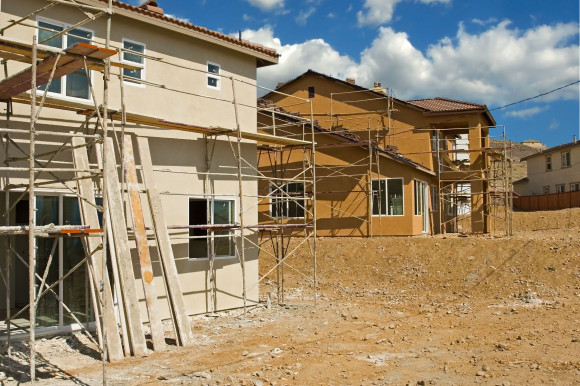Florida has again taken the top spot for strongest building code with Virginia right behind in second place.
That’s according to the 2021 edition of the Insurance Institute for Business & Home Safety (IBHS) report Rating the States, which every three years evaluates building codes and the administration of code provisions of states along the hurricane coastline from Texas to Maine.
A strong building code is critical to reducing the damage and destruction caused by hurricanes each year, according to IBHS.
Florida and Virginia have vied for the top two spots in all four editions of Rating the States.
IBHS has identified South Carolina as a state to watch, citing “significant positive code advances” between 2012 and 2015. The Palmetto State now comes in at third place.
Rounding out the top five are New Jersey and Connecticut.
Meanwhile, neighboring North Carolina rates as most improved in the 2021 edition, gaining five points over its 2018 rating.
Of the 18 states ranked, eight are categorized as ‘Poor’ receiving less than 70 points. Those states, including Georgia, New York, Maine, New Hampshire, Texas, Alabama, Mississippi, and Delaware, lack a mandatory statewide building code.
The report scores the 18 Atlantic and Gulf Coast states vulnerable to hurricanes based on a set of questions related to statewide building code adoption, administration and enforcement and contractor licensing requirements in the adopted building code.
The report also provides a roadmap each state can follow to improve residential building regulations and reduce the cycle of repeated losses resulting from hurricanes and other severe weather events.
“Building science has advanced significantly over the last decade, providing cost effective strategies to reduce the impact of Mother Nature. Modern building codes are core to addressing the known risks of high winds and heavy rain that invariably come with these systems,” says Dr. Anne Cope, chief engineer at IBHS. “Strong adopted and administered codes apply the latest science and engineering knowledge to protect homes and families from the catastrophic damage hurricanes bring and make our coastal communities more resilient for the future.”
Local jurisdictions and homeowners whose states come up short on statewide building codes can use the FORTIFIED Home construction standard to make their homes more resilient. The standard is based on years of IBHS research and outlines the steps to achieve one of three progressive levels of protection starting with the roof, which is any home’s first line of defense against severe weather.
For example, in Alabama, Mobile and Baldwin counties have championed the FORTIFIED Home standard by putting it into their local codes to enhance resilience in the absence of a mandatory statewide building code. IBHS said more than 20,000 homes in Alabama’s two coastal counties carry a FORTIFIED designation.
“Following Hurricane Sally’s landfall last September in Gulf Shores, Alabama, the impact of FORTIFIED was clear. Resilient building saved countless families from the disruption and displacement their neighbors suffered through and demonstrated why we need stronger codes all along the hurricane coastline,” said Cope.
Source: IBHS
Was this article valuable?
Here are more articles you may enjoy.



 Q4 Global Commercial Insurance Rates Drop 4%, in 6th Quarterly Decline: Marsh
Q4 Global Commercial Insurance Rates Drop 4%, in 6th Quarterly Decline: Marsh  After Falling 6% in 2025, Average Auto Insurance Cost Will Stabilize in 2026, Says Insurify
After Falling 6% in 2025, Average Auto Insurance Cost Will Stabilize in 2026, Says Insurify  The $3 Trillion AI Data Center Build-Out Becomes All-Consuming for Debt Markets
The $3 Trillion AI Data Center Build-Out Becomes All-Consuming for Debt Markets  What Analysts Are Saying About the 2026 P/C Insurance Market
What Analysts Are Saying About the 2026 P/C Insurance Market 

